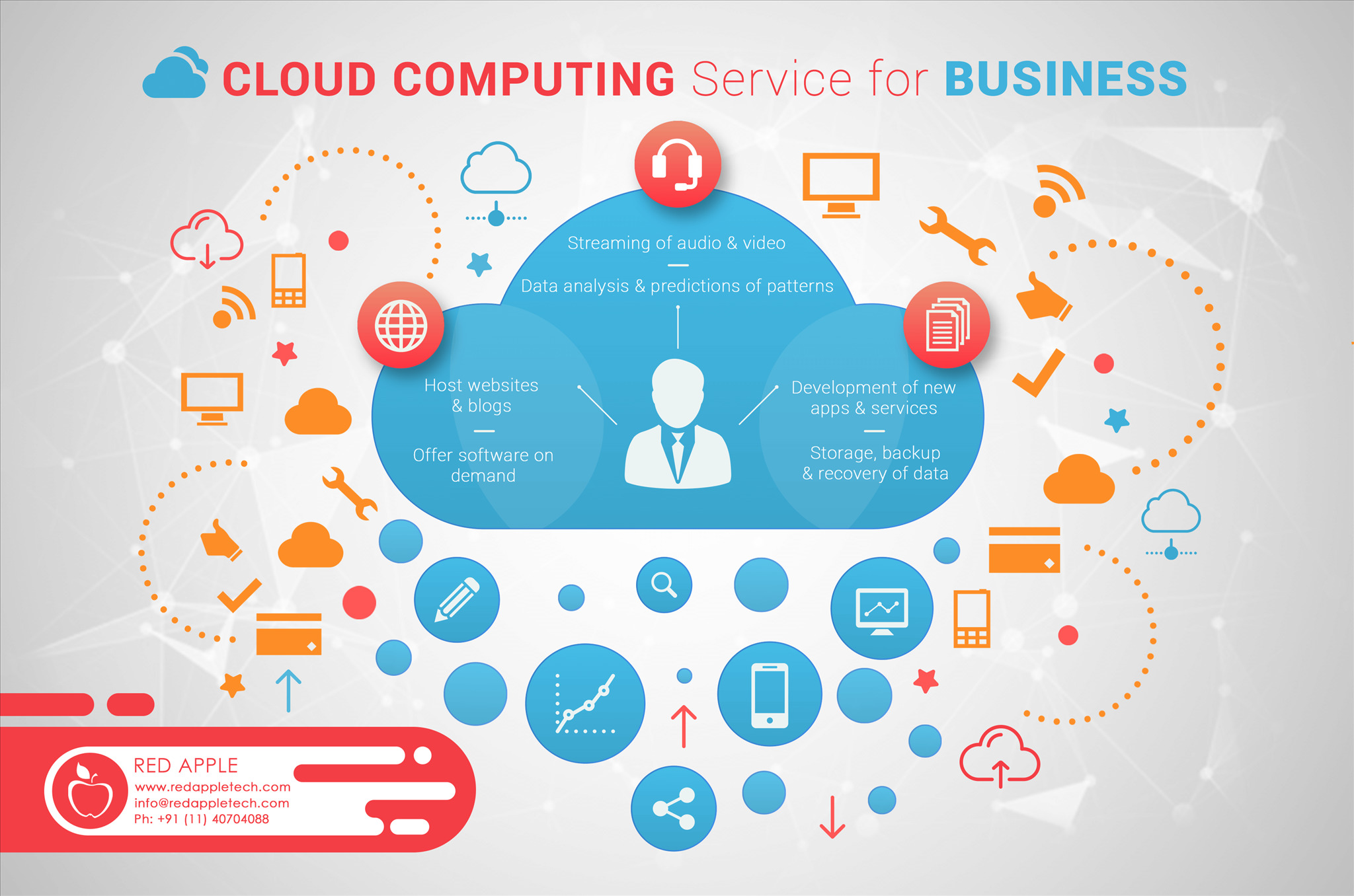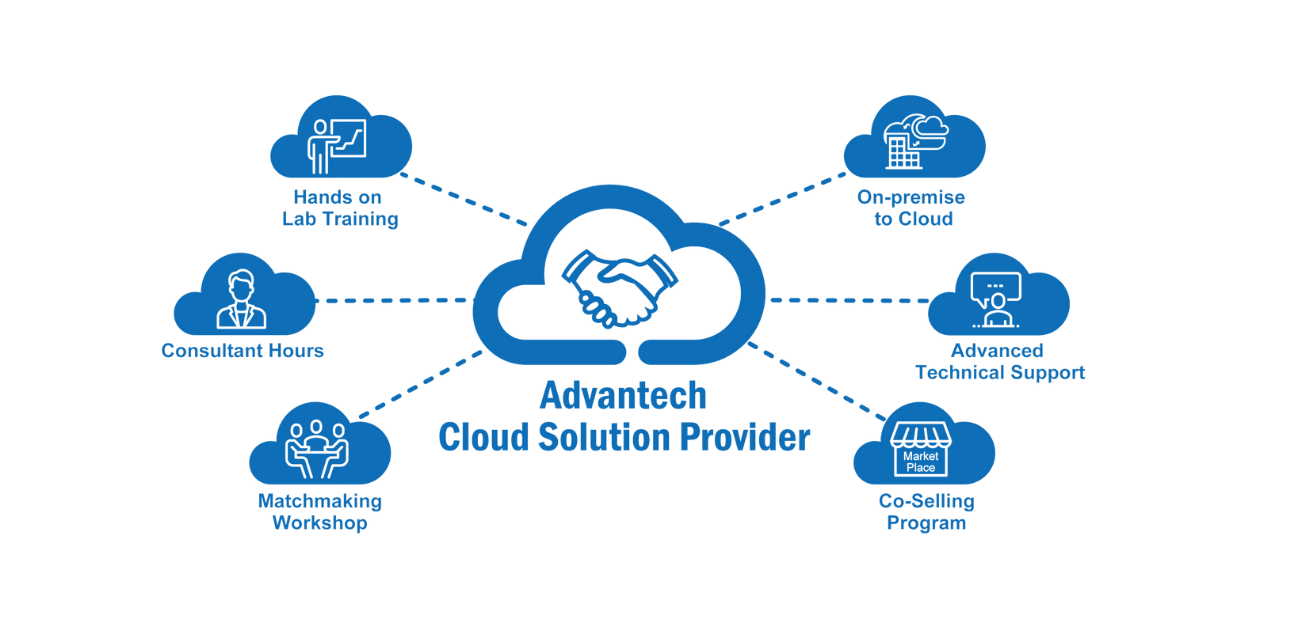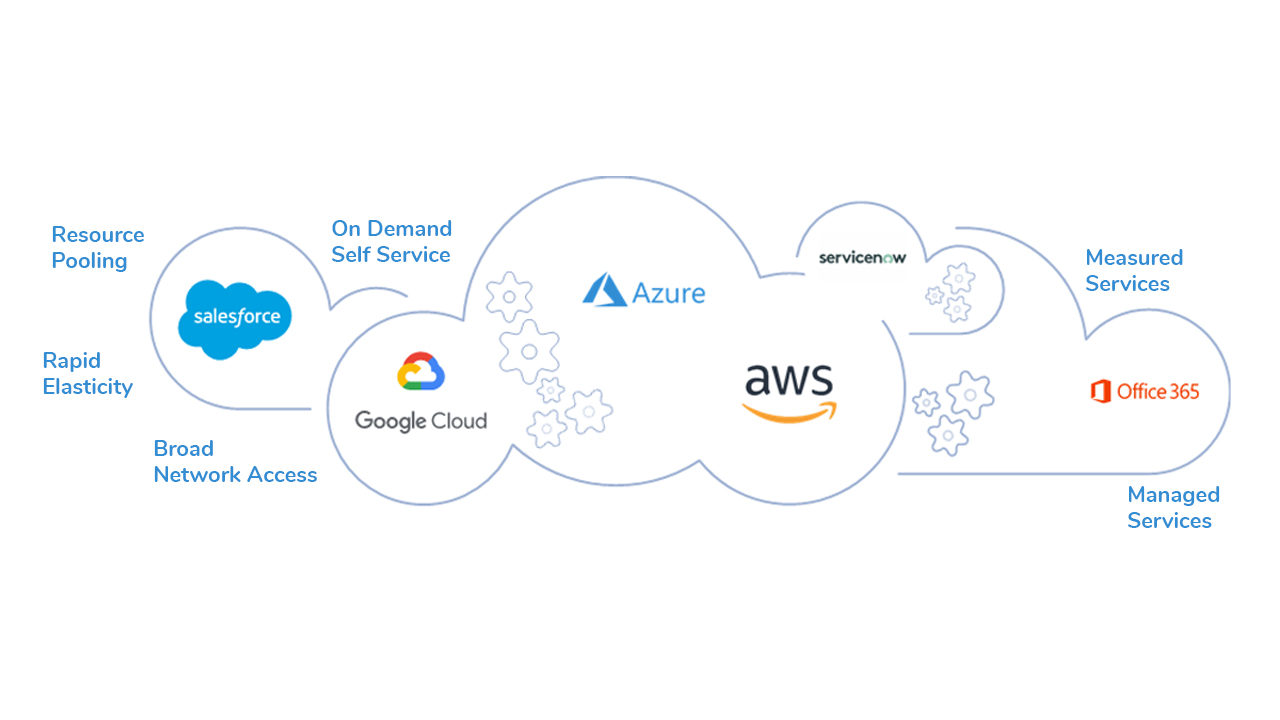Streamline IT Monitoring With Cloud Provider
Cloud services have arised as a feasible service for organizations looking to improve performance, lower prices, and improve general IT efficiency. Exactly how specifically do these cloud solutions reinvent traditional IT administration practices? Let's discover the transformative influence of leveraging cloud solutions on IT operations and the essential considerations for effective implementation.
Benefits of Cloud Solutions

Additionally, cloud services enable companies to boost their functional effectiveness by improving processes and reducing the moment and sources required for managing IT infrastructure. With cloud solutions, services can automate routine tasks, such as software program updates and data back-ups, maximizing IT teams to focus on even more calculated initiatives that drive business worth.

Improved Scalability and Adaptability
Cloud services give companies with unparalleled scalability and versatility in managing their IT resources successfully. Scalability is an essential function of cloud solutions that allows firms to conveniently adjust their IT sources based upon demand. With cloud services, services can swiftly scale up or down their computing resources, storage space ability, and network bandwidth to satisfy transforming needs without the requirement for significant ahead of time financial investments in hardware. This versatility allows organizations to adapt to fluctuating workloads, seasonal demands, or unforeseen development without experiencing downtime or efficiency concerns.
In addition, cloud services provide the adaptability to choose from a selection of solution models, such as Framework as a Service (IaaS), System as a Solution (PaaS), or Software as a Solution (SaaS), based on the particular demands of the service. The enhanced scalability and adaptability used by cloud services encourage companies to maximize their IT operations and remain active in today's dynamic market atmosphere.

Cost-Effectiveness and Savings
With the capacity to efficiently allot resources based upon demand, organizations using cloud solutions can harness significant cost-effectiveness and understand substantial cost savings in their IT procedures. Cloud services provide a pay-as-you-go version, allowing business to only spend for the resources they utilize, removing the need for big ahead of time investments in hardware and software application. This scalability ensures that companies can original site conveniently adapt to rising and fall needs without spending beyond your means on unneeded resources. Additionally, cloud solutions minimize upkeep costs by changing the duty of equipment upkeep and software application updates to the company. This decreases the demand for dedicated IT staff to handle facilities, additional lowering functional expenditures. The cloud provides economies of scale, with companies spreading costs across multiple customers, resulting in reduced specific expenses for services like storage and computing power. Overall, the cost-effectiveness and savings attained via cloud solutions allow services to reallocate resources towards technology and growth initiatives.
Improved Safety And Security and Conformity
Enhancing the general protection pose and guaranteeing governing conformity are paramount factors to consider for businesses leveraging cloud solutions in their IT management methods. Cloud provider provide innovative safety and security actions, such as data security, multi-factor authentication, and automated back-ups, which can reinforce a company's protection framework. These carriers also follow stringent regulatory criteria, such as GDPR, HIPAA, and PCI DSS, helping services fulfill conformity requirements better.
Executing cloud solutions can improve security by offering streamlined control over here over accessibility monitoring, monitoring, and data security. This central strategy streamlines security administration and makes sure regular application of safety policies across the organization. Cloud solutions usually supply real-time safety and security updates and spots, decreasing the threat of vulnerabilities and potential violations.
Ideal Practices for Cloud Execution
Executing cloud solutions efficiently calls for an organized technique that incorporates detailed preparation and thorough implementation. To guarantee a smooth transition to the cloud, organizations need to start by performing a detailed evaluation of their existing IT infrastructure and identifying which work are ideal for migration. It is vital to establish clear purposes and specify essential performance indications (KPIs) to determine the success of the cloud execution.
One of the very best techniques for cloud application is to carefully choose a cloud company that lines up with the company's demands in regards to safety and security, cost-effectiveness, conformity, and scalability. Furthermore, developing a comprehensive movement strategy that describes the steps included, timelines, and duties is essential for an effective implementation.
On a regular basis keeping track of and maximizing cloud sources to ensure effective efficiency and price management is one more important aspect of cloud implementation go to the website finest techniques. Continual evaluation of the cloud atmosphere and remaining educated concerning updates and new functions supplied by the cloud service provider can even more improve the company's cloud strategy. By following these finest methods, companies can simplify their IT management and optimize the advantages of cloud solutions.
Conclusion
In verdict, leveraging cloud services for IT management provides numerous advantages, consisting of boosted scalability, cost-effectiveness, improved security, and conformity. Generally, cloud services boost functional efficiency and dexterity in managing IT infrastructure.
In addition, cloud services offer the flexibility to pick from a range of solution designs, such as Facilities as a Service (IaaS), System as a Service (PaaS), or Software Program as a Service (SaaS), based on the specific requirements of the business. In addition, cloud services decrease maintenance prices by moving the responsibility of hardware maintenance and software application updates to the service supplier.Enhancing the overall protection position and making certain regulative conformity are critical factors to consider for companies leveraging cloud solutions in their IT management approaches.Routinely monitoring and enhancing cloud sources to make sure efficient efficiency and cost monitoring is one more crucial aspect of cloud execution finest practices. Continual analysis of the cloud environment and remaining notified about updates and brand-new functions offered by the cloud provider can better boost the organization's cloud method.